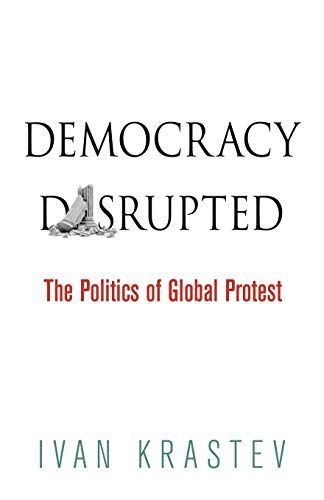
Democracy Disrupted The Politics of Global Protest
Since the financial meltdown of 2008, political protests have spread around the world like chain lightning, from the "Occupy" movements of the United States, Great Britain, and Spain to more destabilizing forms of unrest in Tunisia, Egypt, Russia, Thailand, Bulgaria, Turkey, and Ukraine. In Democracy Disrupted: The Politics of Global Protest, commentator and political scientist Ivan Krastev proposes a provocative interpretation of these popular uprisings—one with ominous implications for the future of democratic politics. Challenging theories that trace the protests to the rise of a global middle class, Krastev proposes that the insurrections express a pervasive distrust of democratic institutions. Protesters on the streets of Moscow, Sofia, Istanbul, and São Paulo are openly suspicious of both the market and the state. They reject established political parties, question the motives of the mainstream media, refuse to recognize the legitimacy of any specific leadership, and reject all formal organizations. They have made clear what they don't want—the status quo—but they have no positive vision of an alternative future. Welcome to the worldwide libertarian revolution, in which democracy is endlessly disrupted to no end beyond the disruption itself.